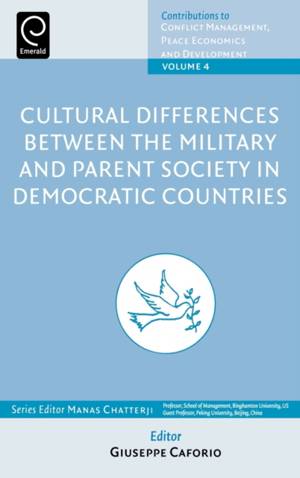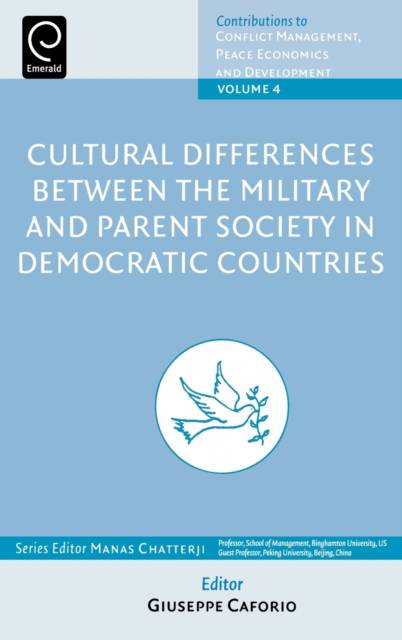
Bedankt voor het vertrouwen het afgelopen jaar! Om jou te bedanken bieden we GRATIS verzending (in België) aan op alles gedurende de hele maand januari.
- Afhalen na 1 uur in een winkel met voorraad
- In januari gratis thuislevering in België
- Ruim aanbod met 7 miljoen producten
Bedankt voor het vertrouwen het afgelopen jaar! Om jou te bedanken bieden we GRATIS verzending (in België) aan op alles gedurende de hele maand januari.
- Afhalen na 1 uur in een winkel met voorraad
- In januari gratis thuislevering in België
- Ruim aanbod met 7 miljoen producten
Zoeken
Cultural Differences Between the Military and Parent Society in Democratic Countries
€ 299,95
+ 599 punten
Omschrijving
This book is a report of cross-national research on the civil-military cultural differences in democratic societies, particularly centred on the attitudes of national elites, here considered as being mainly composed of professionals. The research studies the question: What are the differences between the values, opinions and attitudes of military officers and those of professionals belonging to other categories? What is the effect of these differences on society in each country, and on the national security sector? What are the current trends of this gap? Researchers investigated a sample of cadets at military academies and their generational peers at civilian universities (future elites). An expert survey was also employed to sample present elites, both civilian and military.The report is divided into three parts: the first describes the methodological aspect of the research; the second part, taking a comparative international approach, analyses the results of the research with respect to the main survey themes; the third part continues the volume by examining specific national themes in the context of the results of the cross-national comparison developed in the preceding part. In a final chapter, the data of the expert survey has been compared with the data that emerged from the survey of future elites, to glean elements for a general summary and evaluation on the cultural gap. This is the first cross-national research outside the U.S. on civil/ military cultural differences. It is a significant comparison of the attitudes of present and future elites on security matter. It provides a deep understanding of national specificities of the 13 participating countries on the military issues.
Specificaties
Betrokkenen
- Uitgeverij:
Inhoud
- Aantal bladzijden:
- 376
- Taal:
- Engels
- Reeks:
- Reeksnummer:
- nr. 4
Eigenschappen
- Productcode (EAN):
- 9780444530240
- Verschijningsdatum:
- 1/06/2007
- Uitvoering:
- Hardcover
- Formaat:
- Genaaid
- Afmetingen:
- 156 mm x 234 mm
- Gewicht:
- 698 g

Alleen bij Standaard Boekhandel
+ 599 punten op je klantenkaart van Standaard Boekhandel
Beoordelingen
We publiceren alleen reviews die voldoen aan de voorwaarden voor reviews. Bekijk onze voorwaarden voor reviews.








